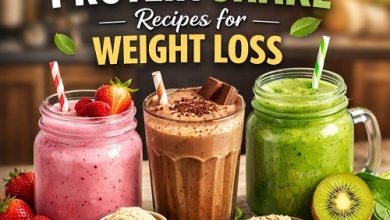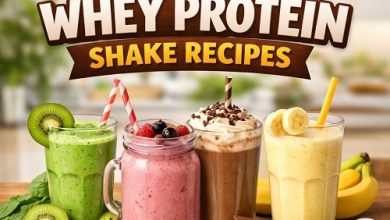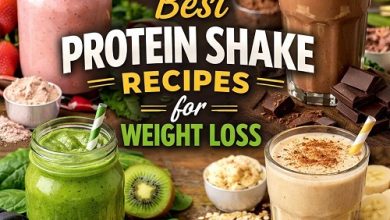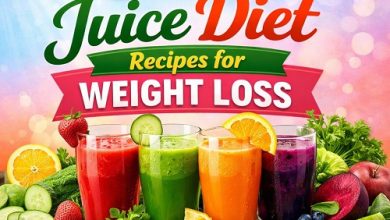10 Superfoods Every Pregnant Woman Should Eat for a Healthy Baby
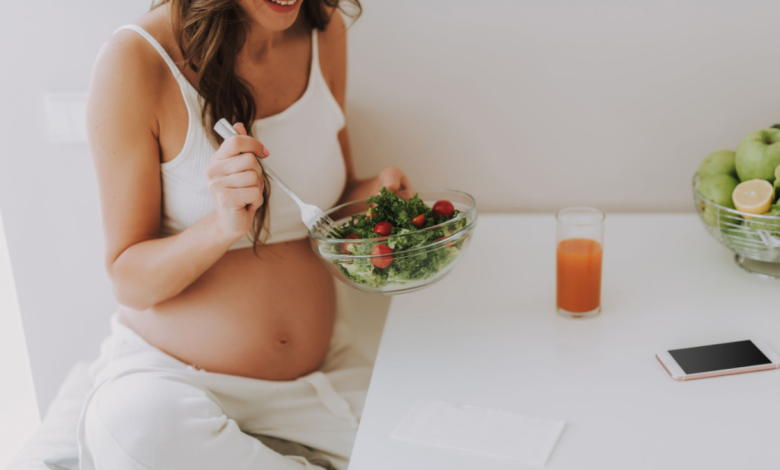
Pregnancy is one of the most beautiful and transformative phases in a woman’s life. As your body nurtures new life, your nutritional needs increase significantly. The foods you eat during these nine months directly impact your baby’s growth and development, as well as your own health and well-being.
While a balanced diet with a variety of whole foods is essential, certain nutrient-rich “superfoods” can provide an extra boost of vitamins, minerals, and antioxidants that support a healthy pregnancy.
10 Superfoods Every Pregnant Woman
Here are 10 superfoods every pregnant woman should eat for a healthy baby.
1. Leafy Green Vegetables
Examples: Spinach, kale, Swiss chard, broccoli
Leafy greens are nutritional powerhouses packed with essential vitamins and minerals. They are rich in folate (vitamin B9), a critical nutrient that helps prevent neural tube defects such as spina bifida.
Additionally, greens provide iron, which is crucial during pregnancy to support increased blood volume and prevent anaemia. They also supply calcium, magnesium, and vitamin K, supporting healthy bone development for your baby.
How to include them:
- Add spinach or kale to smoothies
- Toss steamed broccoli into pasta or stir-fries
- Make a hearty green salad with a drizzle of olive oil
2. Eggs
Eggs are one of the best sources of choline, a nutrient vital for your baby’s brain and spinal cord development. They also provide high-quality protein, which is essential for building your baby’s tissues.
One large egg contains nearly 150 milligrams of choline, about 25% of your daily requirement during pregnancy. Eggs are also rich in vitamin D, B vitamins, and healthy fats, all of which support your health and your baby’s growth.
How to include them:
- Enjoy boiled eggs as a snack
- Make vegetable omelettes for breakfast
- Add hard-boiled eggs to salads or sandwiches
3. Salmon and Fatty Fish
Salmon and other fatty fish like sardines and mackerel are excellent sources of omega-3 fatty acids, particularly DHA (docosahexaenoic acid). DHA is crucial for the development of your baby’s brain, eyes, and nervous system.
Salmon also provides vitamin D, which supports bone health and boosts your immune system.
Note: Choose low-mercury fish and limit intake to 2–3 servings per week to avoid potential heavy metal exposure.
How to include them:
- Grill salmon with a side of vegetables
- Add sardines to wholegrain toast
- Make a healthy fish soup or stew
4. Greek Yogurt
Greek yogurt is a fantastic source of calcium, which is essential for developing your baby’s bones, teeth, heart, and muscles. It also contains probiotics, which support your gut health and may reduce the risk of pregnancy-related digestive issues.
Additionally, Greek yogurt is rich in protein and vitamin B12, supporting energy levels and healthy cell development.
How to include it:
- Enjoy Greek yogurt with fresh fruits and a drizzle of honey
- Add it to smoothies for a creamy texture
- Use as a healthy substitute for sour cream in dips and sauces
5. Berries
Examples: Blueberries, strawberries, raspberries, blackberries
Berries are packed with antioxidants, which protect your cells from damage and support your immune system. They are also rich in vitamin C, which helps your body absorb iron more efficiently and promotes healthy skin for you and your baby.
Plus, berries are high in fibre, which helps prevent constipation—a common pregnancy complaint.
How to include them:
- Snack on a handful of mixed berries
- Add berries to oatmeal, yogurt, or smoothies
- Freeze them for a refreshing summer treat
6. Avocado
Avocado is a nutrient-dense superfood packed with healthy monounsaturated fats, which help build your baby’s brain and nervous system. It’s also high in potassium, fibre, and folate, making it ideal for pregnancy.
The healthy fats in avocados can also help your body absorb fat-soluble vitamins like A, D, E, and K.
How to include it:
- Spread avocado on whole-grain toast
- Add diced avocado to salads or wraps
- Blend it into smoothies for extra creaminess
7. Legumes
Examples: Lentils, chickpeas, black beans, peas
Legumes are a plant-based source of protein, iron, folate, and fibre—all vital during pregnancy. Folate from legumes helps prevent birth defects, while fibre helps maintain healthy digestion and blood sugar levels.
They are also rich in magnesium, which supports muscle function and reduces the risk of leg cramps during pregnancy.
How to include them:
- Make hearty lentil soups or stews
- Add chickpeas to salads or make hummus
- Include beans in tacos, wraps, or rice dishes
8. Nuts and Seeds
Examples: Almonds, walnuts, chia seeds, flaxseeds
Nuts and seeds are excellent snacks for pregnancy. They are loaded with healthy fats, protein, vitamin E, and minerals like zinc and magnesium.
Walnuts, in particular, are a great source of plant-based omega-3s, supporting your baby’s brain development. Chia seeds and flaxseeds provide fibre and alpha-linolenic acid (ALA), which your body converts to DHA.
How to include them:
- Sprinkle seeds on salads, yogurt, or porridge
- Snack on a handful of mixed nuts
- Add nut butter to whole-grain bread or smoothies
9. Sweet Potatoes
Sweet potatoes are rich in beta-carotene, a plant compound your body converts into vitamin A. Vitamin A is essential for your baby’s organ development, including the heart, lungs, kidneys, and eyes.
They also contain fibre, vitamin C, and potassium, making them a nutrient-dense carbohydrate choice for pregnancy.
How to include them:
- Roast sweet potato wedges as a healthy snack
- Mash them as a side dish
- Add them to soups, curries, or stews
10. Whole Grains
Examples: Quinoa, brown rice, oats, barley
Whole grains are rich in complex carbohydrates, which provide steady energy during pregnancy. They also contain fibre, iron, magnesium, and B vitamins, which support your baby’s growth and help maintain healthy digestion.
Quinoa, in particular, is a complete plant-based protein, making it an excellent addition to vegetarian or vegan pregnancy diets.
How to include them:
- Start your day with oatmeal topped with nuts and berries
- Serve quinoa or brown rice as a base for stir-fries
- Use whole-grain bread for sandwiches
Why These Superfoods Matter for Pregnancy
During pregnancy, your body undergoes significant changes to support your growing baby. You need extra nutrients for:
- Fetal growth and development
- Increased blood volume and tissue growth
- Stronger immunity and energy levels
- Preventing complications like gestational diabetes and anaemia
These superfoods provide a natural way to meet your nutritional needs while maintaining a balanced, varied diet.
Tips for Eating Superfoods During Pregnancy
- Eat a variety of foods – Don’t rely on just one or two superfoods. Diversity ensures you get all essential nutrients.
- Stay hydrated – Water, herbal teas, and coconut water help maintain amniotic fluid levels and prevent dehydration.
- Practice portion control – Even healthy foods should be eaten in moderation to avoid excessive weight gain.
- Cook foods safely – Avoid raw or undercooked eggs, meat, or fish to reduce the risk of infections like salmonella and listeria.
- Listen to your body – If certain foods trigger nausea, find alternative nutrient sources.
Foods to Limit or Avoid
While superfoods are beneficial, some foods should be limited or avoided during pregnancy:
- High-mercury fish (like swordfish and king mackerel)
- Raw seafood and undercooked meats
- Unpasteurised dairy products
- Excessive caffeine
- Processed and junk foods high in sugar and unhealthy fats
A Sample Pregnancy Superfood Meal Plan
Here’s a quick example of how to include these superfoods in your daily meals:
Breakfast:
- Oatmeal topped with Greek yogurt, berries, and chia seeds
Snack:
- A handful of walnuts and a boiled egg
Lunch:
- Quinoa salad with spinach, chickpeas, avocado, and olive oil dressing
Snack:
- Sweet potato wedges with hummus
Dinner:
- Grilled salmon with steamed broccoli and brown rice
Dessert:
- Greek yogurt parfait with strawberries and flaxseeds
Final Thoughts
Eating nutrient-rich superfoods during pregnancy is one of the best gifts you can give yourself and your baby. Foods like leafy greens, eggs, salmon, berries, avocados, and legumes provide the vitamins, minerals, and antioxidants needed for a smooth pregnancy and a healthy baby.
Remember, a healthy pregnancy diet is about balance—combine superfoods with other wholesome options, stay hydrated, and listen to your body’s needs. Always consult your healthcare provider or a registered dietitian before making major dietary changes during pregnancy.

